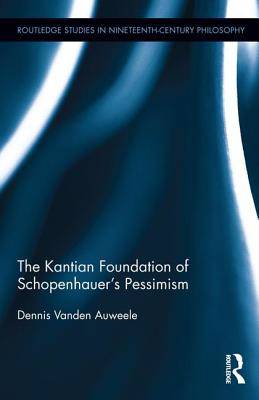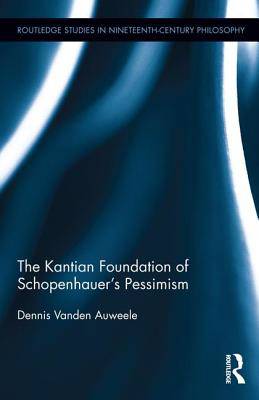
- Afhalen na 1 uur in een winkel met voorraad
- Gratis thuislevering in België vanaf € 30
- Ruim aanbod met 7 miljoen producten
- Afhalen na 1 uur in een winkel met voorraad
- Gratis thuislevering in België vanaf € 30
- Ruim aanbod met 7 miljoen producten
The Kantian Foundation of Schopenhauer's Pessimism
Dennis Vanden AuweeleOmschrijving
This book connects Schopenhauer's philosophy with transcendental idealism by exploring the distinctly Kantian roots of his pessimism. By clearly discerning four types of coming to knowledge, it demonstrates how Schopenhauer's epistemology can enlighten this connection with other areas of his philosophy. The individual chapters in this book discuss how these knowledge types--immediate or mediate, representational or non-representational--relate to Schopenhauer's metaphysics, ethics and action, philosophy of religion, aesthetics, and asceticism. In each of these areas, a specific sense of pessimism serves to disarm a number of paradoxes and inconsistencies typically associated with Schopenhauer's philosophy. The Kantian Foundation of Schopenhauer's Pessismism shows how Schopenhauer's claim that he is a true successor to Kant can be justified.
Specificaties
Betrokkenen
- Auteur(s):
- Uitgeverij:
Inhoud
- Aantal bladzijden:
- 256
- Taal:
- Engels
- Reeks:
Eigenschappen
- Productcode (EAN):
- 9781138744271
- Verschijningsdatum:
- 14/04/2017
- Uitvoering:
- Hardcover
- Formaat:
- Genaaid
- Afmetingen:
- 155 mm x 231 mm
- Gewicht:
- 498 g

Alleen bij Standaard Boekhandel
Beoordelingen
We publiceren alleen reviews die voldoen aan de voorwaarden voor reviews. Bekijk onze voorwaarden voor reviews.











